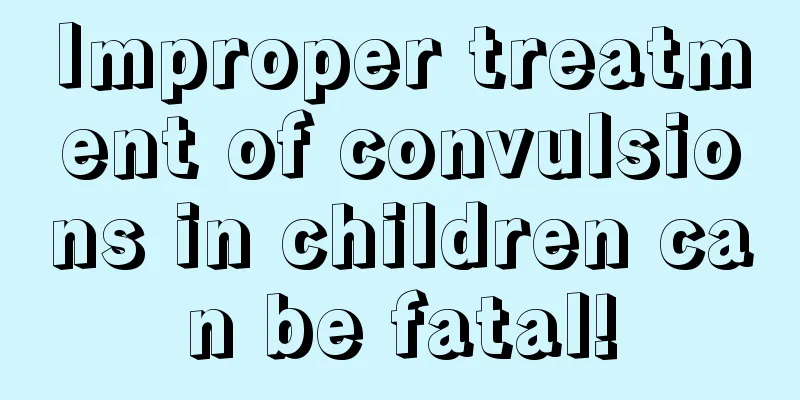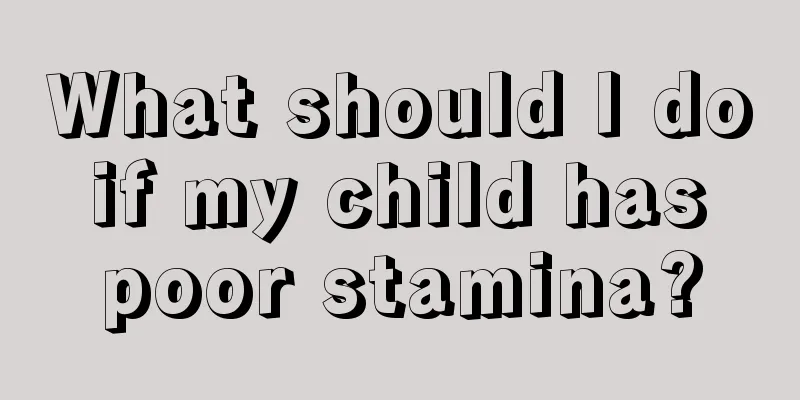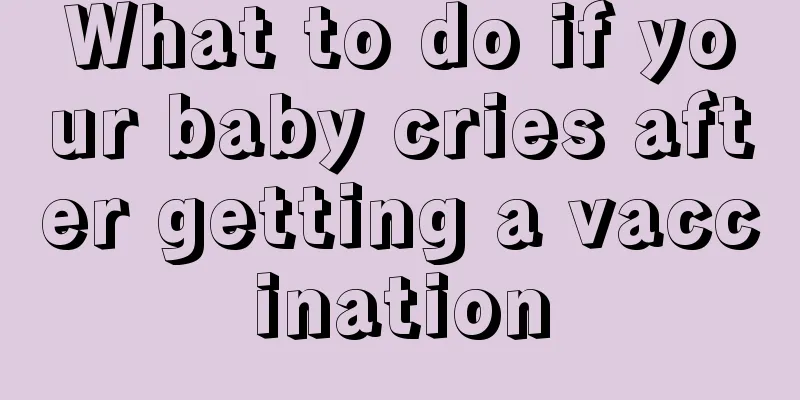What to do if your baby has a fever

|
The degree of fever in babies varies. Parents should determine the treatment method based on the child's condition. If the child has a high fever but is in good spirits and has a good complexion or has relatively simple symptoms, you can choose to treat yourself at home. However, if other complications occur, such as red or purple face, difficulty breathing, etc., you must seek medical attention in time. The degree of the child's fever can seriously affect the child's physical health. 1. Pay attention to your child’s mental state. If the child has a high fever but is in good spirits, and can still laugh and play after taking medicine to reduce the fever, and is almost the same as usual, it means that the child's condition is not serious and he or she can be rest assured to recuperate at home. If the child is listless, tired, and has a dull expression, it indicates that the child is seriously ill and should be taken to the hospital immediately. (2) Observe the child’s facial complexion. If the child's complexion is normal or flushed, you can safely care for him/her at home. If the face is dull, yellow, blue, or purple, and the eyes are dull, it means the condition is serious and the person should be sent to the hospital. (3) Observe whether the child has severe, projectile vomiting. If so, it indicates the possibility of brain disease, the child should be taken to the hospital. (iv) Check the skin for rashes; if present, this may indicate an infectious disease or drug allergy. Check whether the skin turns purple or cool, which indicates circulatory failure. In both cases, you need to go to the hospital again. (5) Observe whether the child has abdominal pain and bloody stools. Abdominal pain that does not allow massage indicates acute abdomen, and bloody stools indicate dysentery, etc., and the child must be taken to the hospital. If the child only has a high fever and does not have the above complications, there is no need to worry even if the fever subsides slowly or recurs from time to time. You should patiently treat and care for the child at home. You can take the following measures: (1) Keep the environment quiet, comfortable and moist, ventilate the room regularly, and adults should not smoke. (2) Fever is the body's protective response against microbial invasion and is beneficial to enhancing the body's resistance. Therefore, there is no need to take antipyretics if the body temperature is below 38.5℃. Antipyretic measures are only required if the body temperature exceeds 38.5℃. (3) The sick child should not wear too many clothes, the quilt should not be too thick, and the child should not be "sweat-covered" to avoid affecting heat dissipation and causing the body temperature to rise even higher. (4) Encourage children to drink more water and eat more fruits. After having a fever, the child's appetite decreases. You can prepare some delicious and easy-to-digest meals and choose the time when the child's temperature is not high or when he or she has taken medicine to reduce the fever to eat, but do not let the child eat too much. (V) Maintain smooth bowel movements. When the baby is in the fever stage, we should pay attention to keeping the room ventilated and cool, dress the baby appropriately, encourage the child to drink more water and eat more fruits, choose some foods that can promote the child's appetite, and keep the child's bowel movements smooth. In this way, the child's health will recover soon. We just need to pay attention to some details. |
<<: What is the reason for the baby's stomach to be full?
>>: Why does my baby cough and make a sound in his throat?
Recommend
Why does my seven-month-old baby always scratch his ears?
Many parents find that their babies have develope...
Infant intellectual development
Many elders are concerned about the healthy growt...
How to care for erythrasma in babies
Red ringworm on babies is a headache for many par...
Nursing methods for neonatal abscesses
Every child will experience eczema after birth. T...
What should I do if my child has asymmetrical eyes?
Many parents will find that their baby's eyes...
Why is there so much mucus?
We all know that nasal mucus is the excess waste ...
Scar repair methods for children
What are the precautions? This is directly relate...
How to give first aid to a child who suddenly goes into shock
Shock is a common emergency and serious illness i...
Why does my child keep sniffing his nose when he doesn't have any snot?
Many mothers have made this discovery: they clear...
Why does a three-month-old baby have tears in his eyes?
The eyes of newborns are most vulnerable to exter...
What vaccines should babies get when they are one and a half years old?
Children should be vaccinated when they are one a...
Are expectorant and cough suppressant medicines useful for children?
Children with poor physical constitutions are pro...
3 month old baby spitting up milk
A three-month-old baby has not yet fully develope...
How to treat asthma in children in life?
In our current lives, we often find that today’s ...
Treatment of gastroesophageal reflux disease in newborns
The physical health of newborns is an issue that ...









